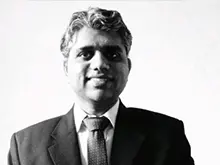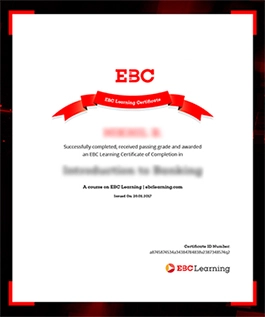Introduction to Contract Drafting
This course is part of a program and cannot be purchased individually.
About Course
The course will include the following agreements:
- Contract Drafting Essentials
- Partnership Agreements
- LLP Agreements
- Shareholders' Agreements
The classes will have a DIY approach and provide hands-on training. The course is unique as it will include an understanding of fundamental doctrines, the bare law and case law and its effect upon the actual drafting.
The course is assignment heavy, and those translate into live sessions. One is expected to draft, review the agreement, suggested the required changes and learn how to work on track/redline mode in MS Word.
This course is part of a program and cannot be purchased individually.
- 📕 Module VII: Introduction to Contract Drafting
- 📋 Unit I: Essentials of Contract Drafting
- 📕 Drafting agreements: The prelude
- ▸ Welcome
- ▸ Purposes of contract law
- ▸ Why draft agreements?
- ▸ Default and mandatory rules
- ▸ Incomplete contracts
- ▸ Vagueness and ambiguity
- ▸ Transaction costs
- ✒ Exercises
- 📕 Language and style in contract drafting
- ▸ Using correct language
- ▸ Using punctuation
- ▸ Keeping in mind grammar and style
- ▸ Using active voice
- ✒ Exercises
- 📕 Introductory parts of an agreement
- ▸ What are the introductory parts of an agreement?
- ▸ Title of the agreement
- ▸ Date of the agreement
- ▸ Place of execution
- ▸ Recitals
- ✒ Exercises
- 📕 Definitions, interpretation and other clauses
- ▸ Introducing the definition clause
- ▸ Interpretation clause
- ▸ Conflicts provision
- ▸ Entire agreement clause
- ▸ Severability clause
- ▸ No oral modification clause
- ▸ No waiver clause
- ✒ Exercises
- 📕 Performance
- ▸ Performance related clauses
- ▸ Performance of obligations in sale deeds and agreements for services
- ▸ Technical standards and specifications
- ✒ Exercises
- 📕 Other clauses
- ▸ Representations and warranties
- ▸ Time as essence
- 📚 Compulsory reading
- ▸ Force majeure clause
- ▸ Intellectual property rights clause
- ▸ Assignment clause
- ✒ Exercises
- 📕 Remedies for contractual breaches
- ▸ Contractual breach
- ▸ Suspension clause
- ▸ Termination clause
- ✒ Exercises
- 📕 Specific performance and other remedies
- 📚 Compulsory readings
- 📕 Other remedies: ▸ Substituted performance (Risk and cost contracting)
- ▸ Contractual set-off
- ✒ Exercises
- 📕 Price, payment, taxes and duties
- ▸ Price clause
- ▸ Time of payment, payment milestones and mode of payment
- ▸ Escrow arrangement
- ▸ Currency clause
- ▸ Taxes and duties clause
- ✒ Exercises
- 📕 Confidentiality agreements and clauses
- ▸ Contents and parties to a confidentiality clause
- ✒ Exercises
- 📕 Dispute resolution clauses
- ▸ Importance of dispute resolution clause
- ▸ Dispute resolution by arbitration and expert determination
- ▸ Pathological arbitration clauses
- ▸ Means of avoiding pathological arbitration clauses
- ▸ Expert determination or valuation
- ✒ Exercises
- 📕 International agreements
- ▸ Challenges faced in international agreements
- ▸ Choice of law clause
- ▸ Notice clause
- ▸ Language clause
- ▸ Conclusion
- ✒ Exercises
- ☆ Feedback
- 📋 Unit II: Drafting a Partnership Deed
- 📕 Necessity of a partnership agreement
- ▸ What is the necessity of drafting a partnership deed?
- ▸ What is the relationship between the Partnership Act and partnership deed?
- ▸ Introduction to drafting the clauses of partnership deed
- ▸ Drafting clauses related to name, business, capital contribution of partners and profit and loss
- ▸ Drafting clauses related to management rights of the partners and restraint of trade
- ▸ Drafting clauses related to accounts and duration of the partnership firm
- ▸ Drafting clauses related to admission of new partners and exit of partners
- ▸ Drafting clauses related to consequences of death, resignation, and cessation of a partner
- ▸ Drafting clauses related to transfer restrictions
- ▸ Registration and stamp duty on a partnership deed
- ▸ Conclusion
- 📋 Unit III: Drafting an LLP Agreement
- 📕 ▸ What is an LLP agreement?
- ▸ Relation between the LLP Act and the LLP agreement
- ▸ Contents of an LLP agreement
- 📕 Introduction to the basic elements of an agreement
- ▸ Title and name of the parties
- ▸ Recitals
- ▸ Definitions
- ▸ Interpretation clause
- 📕 Understanding the clauses — Scope, organisational matters, and purpose of an LLP
- ▸ Scope and purpose of the agreement
- 📕 Partners and designated partners clause
- ▸ Introduction to the clause
- ▸ Drafting the designated partner clause
- ▸ Drafting the clause—Admission of a new partner
- ▸ Drafting the clause—Rights and obligations of the partners
- ▸ Drafting the clause—Duties of the partners
- 📕 Meetings
- ▸ Drafting the clause—Meetings
- ▸ Drafting clause on the conduct of meeting
- ▸ Drafting clause on notice and agenda to call a meeting
- ▸ Drafting the clause on quorum and reserve matters
- ▸ Drafting the clause on deadlock
- 📕 Capital contribution, remuneration, profit sharing and transfer of interest
- ▸ Drafting the clause—Capital contribution and profit share
- ▸ Transfer of interest
- ▸ Drafting the clause—Right of first offer
- ▸ Drafting the clause—Right of first refusal
- ▸ Drafting the clause—Tag-along & drag-along rights
- 📕 Cessation of existing partners, default and winding up
- ▸ Drafting the clause—Cessation of existing partners
- ▸ Drafting the clause—An event of default
- ▸ Drafting the clause—Winding up
- 📕 Accounts, title to property and borrowing powers
- ▸ Drafting the accounts clause
- ▸ Drafting the clause—Title to property
- ▸ Drafting the clause on borrowing powers
- 📕 Liability of the LLP, indemnity, representation and dispute resolution
- ▸ Drafting the clause on liability of the LLP and the partners
- ▸ Understanding what is an indemnity, representation and warranty
- ▸ Drafting the clause on indemnity
- ▸ Drafting the clause on representation and warranty
- ▸ Drafting the clause on dispute resolution mechanism
- ▸ Conclusion
- 📚 Readings
- 📚 Compulsory readings
- 📚 Extra readings
- ✍️ Assignment
- ✍️ Assignment
- ☆ Feedback
Instructors

Badrinath Srinivasan
Chief Manager (Legal), Bharat Petroleum Corporation Limited (BPCL)
Badrinath Srinivasan has over 15 years experience in contract-related issues and handling high-stakes international arbitrations and litigations in the petroleum exploration and production sector.

Abhinandan Malik
Editor Publications & Director, EBC Learning
Abhinandan Malik is Editor (Publications) & Director at EBC, India's top law publisher. He is a graduate of NALSAR University of Law with an LLM from the University of Toronto. He has 10+ years of editorial experience, conceptualising, guiding and editing publications at EBC.

Juhi Roy
Instructor, EBC Learning
Juhi Roy has previously worked as a Senior Associate in the General Corporate team of Argus Partners, Kolkata. She has also worked with Cyril Amarchand Mangaldas, Mumbai; Network 18 Media and Investments Limited, Mumbai; Wadia Ghandy & Co., Mumbai; and SA Partners, Mumbai.

Tishampati Sen
AOR, Supreme Court
Tishampati is an Advocate on Record at the Supreme Court with over 13 years experience. He started his career by working at J Sagar Associates. He then joined Mr Gopal Subramanium’s chamber and thereafter set up his own practice.
Certificate
Complete this course and exercises to earn a certificate. Share it with your friends, colleagues, and employers.*
*You must Subscribe to get a certificate.

Limit Reached or Trial Expired
You have reached the limit of 2 audit enrollments or your trial period has expired.



